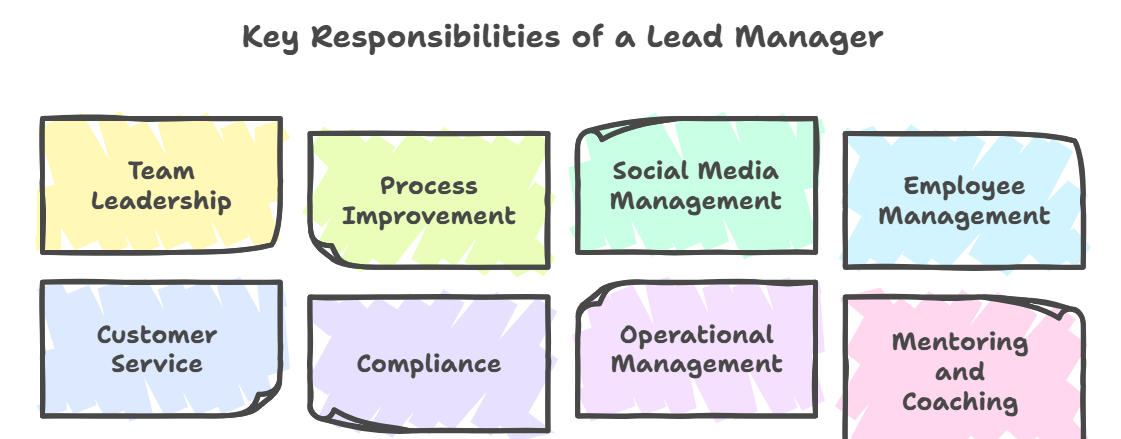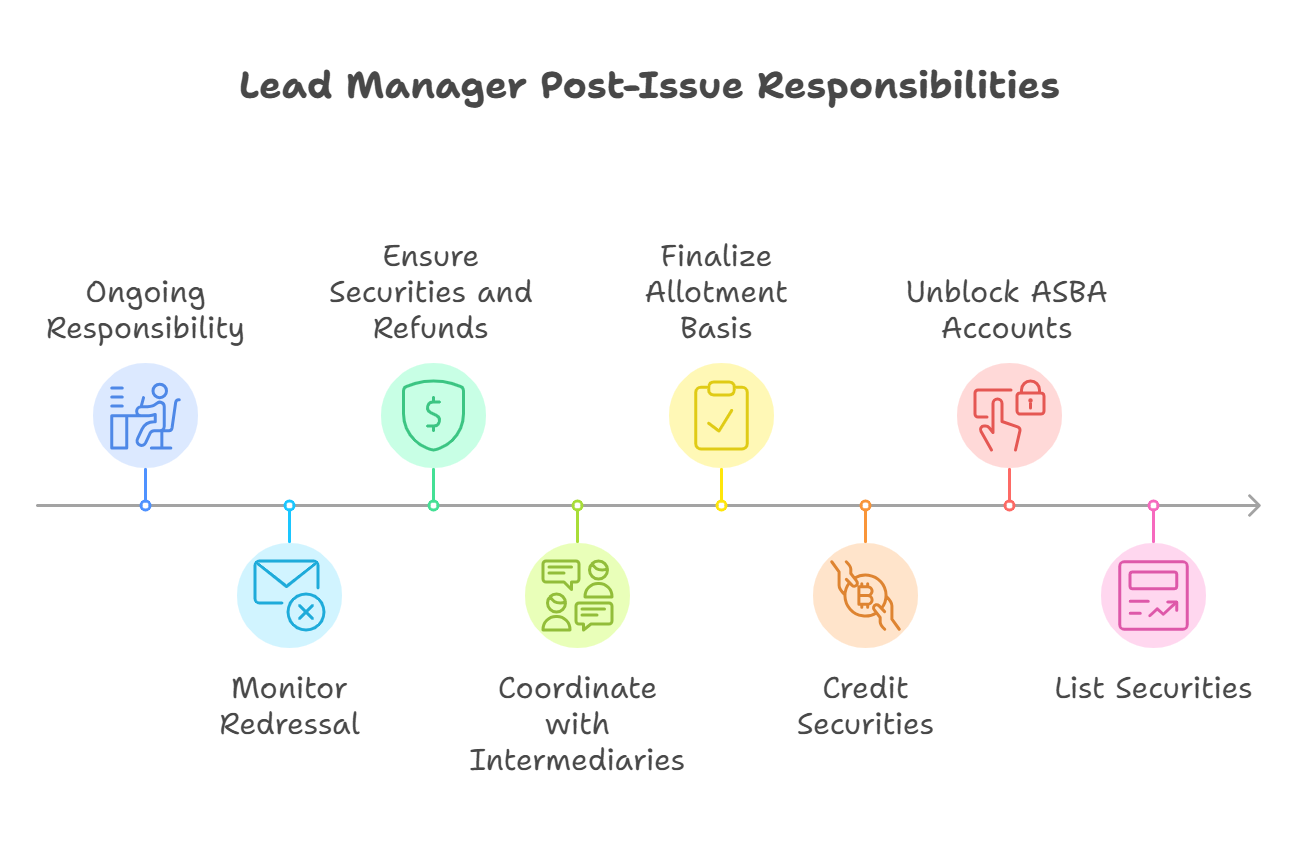Lead Manager: Role Overview
A Lead Manager is responsible for overseeing the progress and performance of an office or department. This involves a range of activities, including:
- Performance Monitoring: Creating progress reports and analyzing documentation.
- Resource Management: Managing budgets and procuring necessary supplies.
- Strategic Planning: Developing strategies for lead generation and achieving targets.
- Team Leadership: Spearheading projects, motivating staff, and ensuring adherence to company policies.
Key Responsibilities
Lead Manager responsibilities can vary significantly but often include examples such as:
- Team Leadership: Leading and managing teams to achieve optimal productivity.
- Process Improvement: Defining and implementing processes and procedures for improved efficiency.
- Social Media Management: Managing social media presence to increase visibility.
- Employee Management: Managing payroll, performance evaluations, and development opportunities.
- Customer Service: Handling customer service issues and resolving emergencies.
- Compliance: Establishing and maintaining internal audit procedures for regulatory compliance.
- Operational Management: Managing daily operations, delegating tasks, and managing inventory.
- Mentoring and Coaching: Mentoring managers on various topics (change management, time management, etc.).
- Service Delivery Improvement: Identifying and implementing opportunities to improve service quality.
Skills & Personality Traits
Lead Managers often possess a combination of technical and soft skills. Top skills based on resume analysis include:
-
Technical Skills:
- Safety Procedures (Ensuring adherence to safety guidelines)
- Sales Floor Management (Providing excellent customer service and product knowledge)
- Gross Margin Management (Maintaining optimal profit margins)
- Specialized Skills (e.g., PET, Product Knowledge, etc.)
-
Soft Skills (Essential for Effective Leadership):
-
Communication Skills: Clearly and persuasively conveying information.
- Example: Managing hazardous materials communication and safety protocols.
-
Time-Management Skills: Effectively managing multiple tasks and deadlines. * Example: Accomplishing sales goals and meeting deadlines effectively.
-
Leadership Skills: Coordinating resources, people, and policies to direct the organization.
- Example: Receiving recognition for exceptional leadership and operational management.
-
Problem-Solving Skills: Identifying and resolving organizational issues.
- Example: Developing risk management plans and coordinating
- issue resolution.
Lead Manager Post-Issue Responsibilities
The lead manager's responsibilities extend beyond the initial offering and continue until the issue process is complete, covering all issue-related matters. This includes:
-
(1) Ongoing Responsibility: The lead manager remains responsible until the completion of the entire issue process and any subsequent issue-related matters.
-
(2) Monitor Redressal: Regularly monitor and facilitate the resolution of investor grievances arising from any issue-related activities.
-
(3) Responsibilities Continue Until: The lead manager remains responsible until all applicants have received:
- Securities certificates.
- Credit to their demat accounts.
- Refund of application monies (if applicable).
- The issuer has entered into a listing agreement with the stock exchange and listing/trading permission is obtained.
-
(4) Coordinate with Intermediaries: The lead manager is responsible for coordinating and monitoring with:
- Registrars to the issue.
- Various intermediaries. This coordination should occur regularly after the issue's closure. The goal is to monitor the flow of applications (from syndicate members, collecting bank branches, or self-certified syndicate banks (SCSBs)), application processing (including ASBA applications), and all related matters. This continues until:
- The basis of allotment is finalized.
- Securities are credited to the demat accounts of allottees.
- ASBA accounts are unblocked/refund orders are dispatched.
- Securities are listed (if applicable).


